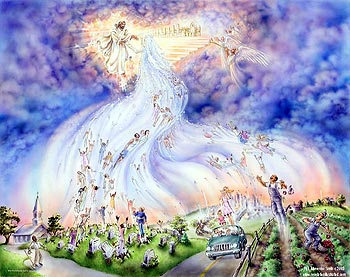This is just scratching the surface. It is by no means THE definitive answer; rather, I’d like to think of it as something to get you started in doing your own Bible search on the topic. )

I wish I could do that. Unfortunately, I am finite in every regard, including the ability to forget when I have been wronged. For us, the key is in realizing that forgiving is a process, not an event. Jesus told Peter that we need to forgive “seventy times seven.” In other words, we need to forgive to infinity and beyond, to quote Buzz Lightyear ![]() The first time I forgive, especially when the wrong has been grievous, ongoing, perhaps is still happening, is the beginning of a long process of choosing over and over to forgive again. What I have learned is that Satan is very busy reminding me of the offenses, and I have to recognize his voice and shut him down; then I have to pray, asking God to help me keep on forgiving. Another thing I have learned is that in the beginning of the process, this could happen several time in a day or a week. As time goes by, the forgiveness seems to seep into my thinking and emotions so that Satan isn’t very successful in reminding me of it.
The first time I forgive, especially when the wrong has been grievous, ongoing, perhaps is still happening, is the beginning of a long process of choosing over and over to forgive again. What I have learned is that Satan is very busy reminding me of the offenses, and I have to recognize his voice and shut him down; then I have to pray, asking God to help me keep on forgiving. Another thing I have learned is that in the beginning of the process, this could happen several time in a day or a week. As time goes by, the forgiveness seems to seep into my thinking and emotions so that Satan isn’t very successful in reminding me of it.
It is important to understand that we forgive not for the sake of the offender, but for our own release from the prison of anger and bitterness. Sometimes the person we need to forgive is already dead, or has no idea of the hurt, anger and bitterness we hold because their sin has never bothered them. To approach a person like that and tell him you have forgiven him may get you a big horselaugh. Not worth it.
You do not have to continue to be hurt when you have forgiven. Women who have forgiven abusive husbands do not have to continue to accept the abuse. That’s a whole other conversation. Children who have forgiven abusive parents, siblings who have forgiven abusive sibling—there is no requirement that we need to stick around and let them continue hurting us. There are boundaries to be drawn, consequences to be established and kept, so that the cycle of abuse is broken.
I think I can safely say that 80% or more of the people I see for depression/anxiety are people who have never learned how to deal with mistreatment, real or perceived. They have never understood that “forgive and forget” is not in the Bible; but they also have not learned that to repeat the offense over and over in conversation and/or memory is to keep it alive. Hurt and anger turn to self-pity, then to bitterness, and finally to depression.
This is just scratching the surface. It’s a huge topic, one I’ve had to learn to deal with in my own life. I’ve developed handouts for my clients; I’ve spoken about it in conferences and seminars. As long as we live on this earth, we’re going to be experiencing hurt, offense, anger, bitterness, and depression. The only antidote is to learn true forgiveness, and to understand that it is often very hard work. Where we love deeply, forgiveness can be very difficult.
I also believe that when a person offends over and over, across time, it is very possible to stop loving that person, The offender often seems to think that any behavior of his is excused because he himself was hurt. And it can become a generational cycle. Very sad, often tragic. And again, a whole other conversation ![]()












